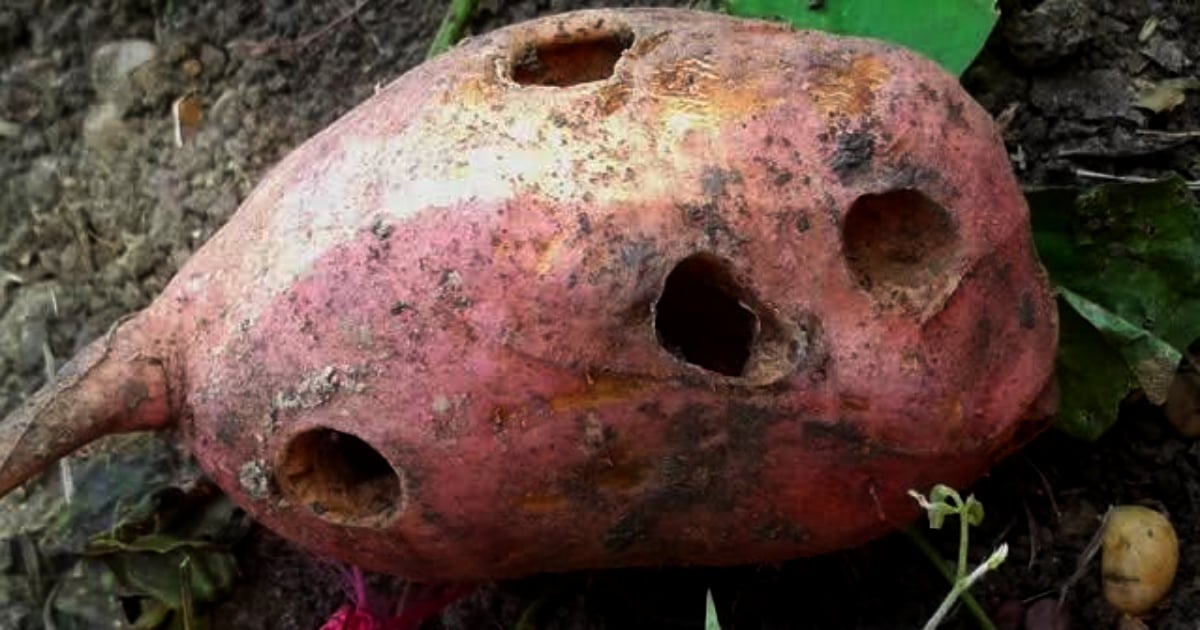The agricultural sector in Cuba has witnessed a dramatic decline in output in 2023 compared to the previous year, as highlighted by the latest figures from the 2023 Statistical Yearbook of Cuba. This data underscores the worsening food security crisis gripping the nation. Key staples such as pork, rice, tubers, eggs, cow's milk, beans, and vegetables have all seen substantial decreases in production, as noted by economist Pedro Monreal in a recent tweet.
According to these official statistics, pork production—a crucial protein source in the Cuban diet—has plummeted by 93.2% in 2023 compared to 2022, illustrating the collapse of the country's pork industry. The decline is attributed to a lack of resources, the degradation of the state-run production system, and difficulties in accessing balanced feed for livestock.
The rice sector, another vital component of the island's diet, experienced a 59.1% reduction. Meanwhile, the production of tubers and eggs decreased by 44% and 43%, respectively. Cow's milk saw a 37.6% contraction, impacting the availability of dairy products crucial for child nutrition and the diet of vulnerable populations.
Monreal remarked that these figures confirm a "significant crisis" in food security in Cuba. He also noted that while the 2024 data has yet to be released, preliminary reports suggest an even further deterioration, raising concerns about the island's future food supply.
Challenges and Impacts on Cuban Agriculture
The Cuban agricultural sector has faced numerous challenges in recent years, including outdated machinery, shortages of fertilizers and supplies, and restrictions on private farmers. Compounding these issues are rampant inflation and logistical hurdles stemming from the country's ongoing economic crisis.
The 2023 Yearbook data reveal that beans and vegetables also suffered decreases of 29.5% and 22.7%, respectively, impacting the variety and availability of fresh produce in markets. This forces the population to rely on more expensive imported options or products with lower nutritional value.
These food shortages have led to increased scarcity of basic goods in state markets and soaring prices in the private sector, where costs have become unaffordable for much of the Cuban populace. Daily, Cubans endure long lines and uncertainty about finding essential food items.
Experts warn that domestic production falls far short of meeting internal demand, necessitating reliance on imports, which is complicated by a lack of foreign currency and international restrictions. Despite government efforts to boost agricultural output through new policies and sector restructuring, results have been insufficient to reverse the downward trend.
Policy Proposals and Recommendations
In July 2022, the Cuban government enacted the Food Sovereignty Law to ensure safe and nutritious food for all citizens. This legislation aimed to regulate the organization of sustainable local food systems, promoting domestic production, processing, marketing, and consumption.
However, critics argue that while the law provides a legal framework, it fails to effectively address import dependency or offer concrete solutions for increasing national production. Highlighted below are some key analyses and proposals from experts and authorities:
1. Privatization of Agriculture: Economist Pedro Monreal has proposed privatizing Cuban agriculture as a means to overcome the sector's performance crisis. He argues that developing a modern private agriculture sector, which would require significant institutional changes in terms of ownership and market, along with substantial investment, is crucial. This proposal seeks to enhance agricultural efficiency and productivity through private sector involvement.
2. Criticism of Government Measures: Analysts like Elías Amor have questioned the effectiveness of government measures to improve food production. In response to official programs, they have pointed out that initiatives such as the "63 measures" have not succeeded in boosting agricultural productivity and efficiency, underlining the need for profound changes in property rights structures to foster a more conducive environment for agricultural production.
3. Limitations of State Policies: Previous analyses have emphasized that food sovereignty cannot be achieved solely through decrees or laws. It is argued that creating a legal framework granting producers autonomy and freedom over their production is essential, reducing state intervention and allowing market supply and demand laws to play a more significant role.
Understanding Cuba's Food Crisis
What are the main causes of the food crisis in Cuba?
The food crisis in Cuba is primarily caused by a dramatic decline in agricultural production due to a lack of resources, outdated machinery, and logistical challenges. Additionally, the economic crisis and international restrictions have compounded these issues.
How has pork production been affected in Cuba?
Pork production in Cuba has plummeted by 93.2% in 2023 compared to the previous year, reflecting the severe collapse of the pork industry due to the lack of balanced feed and a deteriorating state-run production system.
What government actions have been taken to address the food crisis?
In response to the food crisis, the Cuban government enacted the Food Sovereignty Law in 2022 to promote sustainable local food systems. However, critics argue that the law does not effectively tackle import dependency or enhance national production.
